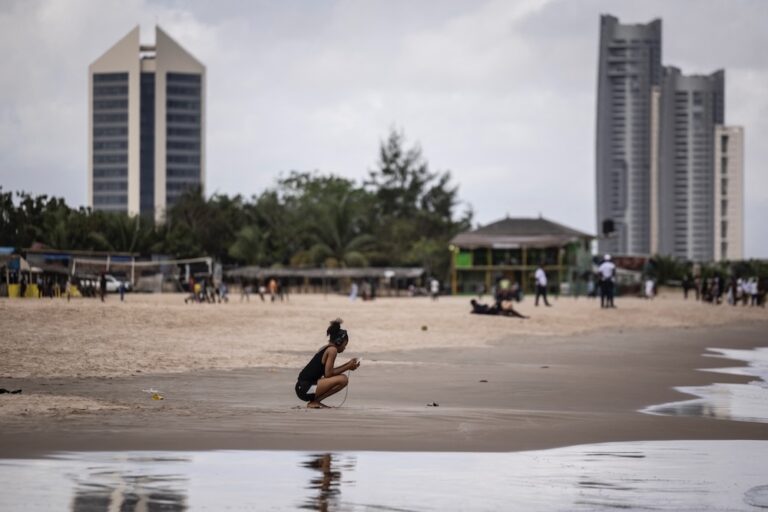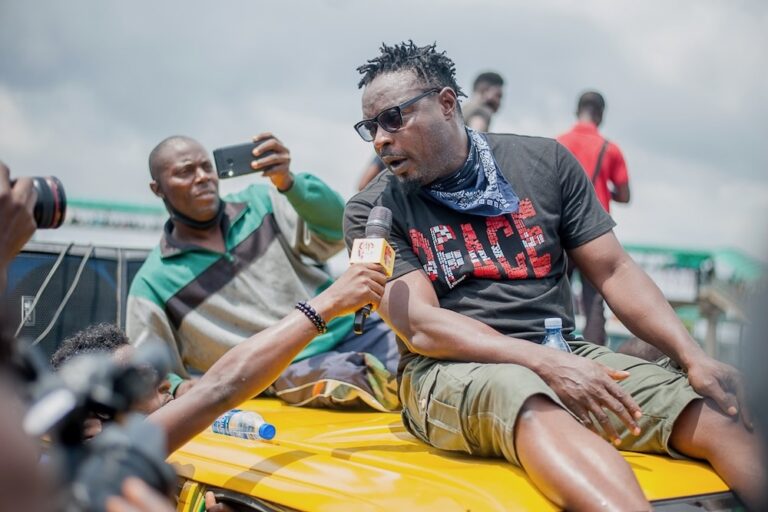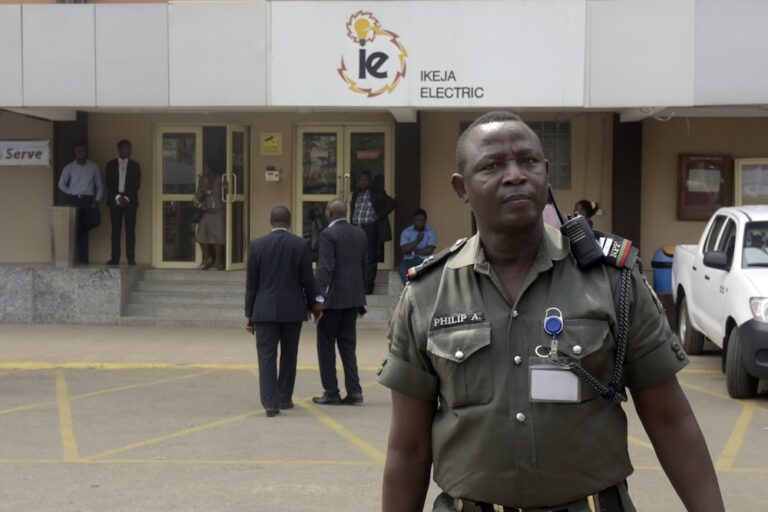(CCPJ/IFEX) – The battle for freedom of expression and democracy in Nigeria is not over, said recently-released Nigerian journalist Chris Anyanwu in a keynote speech given at the Canadian Committee to Protect Journalists’ (CCPJ) Annual Meeting in Toronto, Canada on 17 September. Anyanwu, released after the death of dictator Sani Abacha, thanked the CCPJ and […]
(CCPJ/IFEX) – The battle for freedom of expression and democracy in Nigeria
is not over, said recently-released Nigerian journalist Chris Anyanwu in a
keynote speech given at the Canadian Committee to Protect Journalists’
(CCPJ) Annual Meeting in Toronto, Canada on 17 September. Anyanwu, released
after the death of dictator Sani Abacha, thanked the CCPJ and other
organisations who had been indispensable in obtaining her release.
Anyanwu, founder of “The Sunday Magazine (TSM)”, was first arrested in
March 1995 in connection with reports in “TSM” about an alleged coup plot.
She and three other journalists were charged with being “accessories after
the fact of treason” and sentenced at secret trials that year to a life
sentence that was later reduced to 15 years’ in jail. She was released in
June 1998 on medical grounds.
Anyanwu said international lobbying annoyed Abacha, and stopped him from
imposing the death penalty on journalists such as herself, George Mbah,
Kunle Ajibade and Ben Charles Obi who had been arrested for reporting on a
coup. She questioned how a journalist could be arrested for “reporting a
coup” and called for support for journalist Niran Malaolu. He was imprisoned
late last year on charges similar to Anyanwu’s. His sentence was recently
reduced to 15 years as well. She charged, “The fact that this bad precedent
has been repeated by a government that espouses respect for human rights is
dangerous. What it implies is a deepening belief among the military that
journalists can write a coup.”
Anyanwu believes that after Abacha was prevented from putting to death the
alleged coup plotters and those who reported on the surrounding events, he
flew into a rage. “Then to prove to the world that he could bite, he grabbed
Ken Saro-Wiwa and his people and slaughtered them secretly.” She called for
restitution to be made to the family of the Ogoni leader and popular writer,
and to others who have been brutalized by the Abacha regime.
She thanked the members of the International Freedom of Expression eXchange
(IFEX) network for their support. She said, “The information support of IFEX
has really helped press freedom NGOs around the world to lift advocacy work
to new heights so that there was pressure everywhere Abacha’s government
reared its head…. Without the work of groups like CCPJ, the tyrannical
grip on Nigeria would have been tighter. The widespread negative publicity
and the groundswell of consciousness it raised neutralized the millions of
dollars they spent laundering the image of a sick regime.”
The audience was overwhelmed to hear that she had received 9,000 letters of
support in the first load of mail she was permitted to receive. She pasted
photographs sent by children from Canada and the U.K. in her prison cell to
cover up the gloomy walls. She said the support kept up her strength and she
thanked “the people of Canada [who] were among the most consistent and
intensive in protesting against the injustice and reaching out to me.”
She refused to disclose many details of her imprisonment, saying they were
too difficult to describe in a few words. She did report that she has
received treatment for her failing eyesight and is no longer in danger of
going blind. She commented, “What I saw in the days of incarceration is a
long story but to me what is important are the positive things that came out
of it…. I now appreciate life more fully. I have learned the true meaning
of freedom. I value it and will fight for it both for myself and others.”
She also promised to re-launch “TSM”, which went out of circulation while
she was in jail.
She called for the repeal of decrees and laws which continue to repress the
media in Nigeria, such as Decree 29 which imposes the death penalty for repo
rting negatively on the country’s leader. “The Nigerian press won its own
freedom without relying on the courts or enjoying their cooperation. Our
freedom has been won at very high cost. We value it and fight to keep it
every day.”
In order to keep publishing, Anyanwu said the Nigerian press needs
technological support, among other things. “We in the independent press who
have borne the brunt of the onslaught are in a state of physical and
financial exhaustion. Repression has caused us to retreat into stone-age
operations so that publishing now amounts to miracle-working.”
Finally, in closing, she exhorted the Nigerian people not to give up until
democracy is restored in their country. She promised to keep fighting for
freedom of the press and pledged to keep working as a journalist despite her
harrowing experience in jail. She concluded, “The Nigerian press, the human
rights groups and the few vocal individuals and politicians have been alone
in the war on the home-front and they have been clobbered by the massive
force of repression. While they remain willing to fight on, they need the
power of the people behind them for the battle they fight is for the true
emancipation of the people. A man who cannot speak out, cannot express his
opinion in his own land is not free. Freedom, total freedom should be the
goal of every Nigerian now.”


